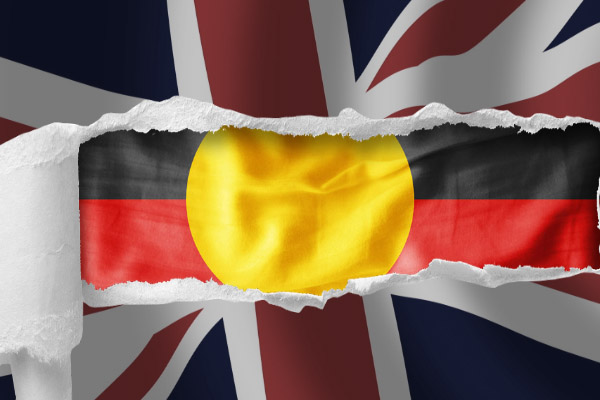The inclusion of poets in a republic would provide marginalised elements of society with an important and educational voice, writes Dr Robert Wood.
In my last few pieces for Independent Australia, I have outlined some of the possibilities of an Australian republic. This has been as an inclusive, independent, non-violent, supportive and connected form of government.
We need to dream of what to make the place rather than critique the Queen as something to negate. We need to paint a picture of the future as we can reimagine this place, thinking, of course, about this continent in a deeper and truer nature that nourishes us as citizens and people.
All of that matters and is a historic task before us as we seek justice, equity and healing. To reflect, though, on the philosophical concerns posed by writing on the republic, I want to turn to Plato.
Many readers will be familiar with Plato’s ‘Republic’. This is the foundational text out of which emerges a whole body of Western political thinking, considering the place of many others that came after, from the revolutionary French and American republics to the decolonised ones in Africa and Asia in the mid-twentieth century. Not everyone may have read Plato, but we can return to the text as a way to read our historical moment.
Although there are many great things about Plato’s idealised political community, despite a great many criticisms, I want to focus on poets most of all. I am a poet. It is what I mainly write and am known for. It has a different logic today than it did before and it is also something I care deeply about. It has different cultural positions in different places, even here in Australia. I know that from experience in university and communities, in cities and the country and I am also assured of it in my daily interactions that suggest we need to care for language most of all.
Plato’s ‘Republic’ bans poets, as stated elsewhere:
In Books III and X of the Republic, Plato addresses the problem of poets. He deduces that they are imitators of the world, and therefore far from the truth: “the tragic poet is an imitator, and therefore, like all other imitators, he is thrice removed from the king and from the truth.”
The other dangers of poets are that they corrupt youth and incite the passions instead of the faculties of reason. The poet, “with his words and phrases,” is able to convince listeners that he knows what he speaks of: “such is the sweet influence which melody and rhythm by nature have.”
Poetry, including the narratives of others’ lives, appeals to the emotions; it “feeds and waters the passions instead of drying them up; she lets them rule, although they ought to be controlled, if mankind are ever to increase in happiness and virtue.”
In Book X, Plato concludes that poetry must be banished from the hypothetical, ideal society; however, if poetry makes “a defense for herself in lyrical or some other meter,” she may be allowed to return from exile. Qualities of usefulness and a “well-ordered State” are emphasised; he adds: “we may further grant to those of her defenders who are lovers of poetry... the permission to speak in prose on her behalf: let them show not only that she is pleasant but also useful to States and to human life, and we will listen in kindly spirit; for if this can be proved we shall surely be the gainers — I mean, if there is a use in poetry as well as a delight?”
And so, what can we deduce from this? Poets are dangerous as teachers of the young — they are passionate, they corrupt, they are depressing. That is why they are not allowed to become citizens in Plato’s ‘Republic’. But they are allowed in if they are able to speak the language of philosophy and take poetry as the subject.
Plato’s ‘Republic’, for all its historical veneration, is an exclusive ideal that shut out more than it included. Earlier, I have written about how we need to build a society that takes care of its needy and recognises many individual identities. That is where the republic is a trans issue, a disability issue, a homelessness issue and many more besides.
What we must respond to Plato is that poets are included in the republic to come, that we are able to create a society and a government in connection with its true and ongoing nature, that we bury the hatchets of colonialism and violence, to ensure that peace reigns and we are able to be free. Without poets at the table, then we all lose, no matter if they are unreasonable. In order for our democracy to be truly democratic, it needs to find a way to recognise, uplift and transcend its historical categories and find a way to be a utopia in which all can dwell.
Dr Robert Wood is chair of PEN Perth. A Malayali with East Indian Ocean connections, he lives on Noongar Country in Western Australia. The author of four books, Robert has held fellowships at the University of Pennsylvania and Columbia University.
Related Articles
- Becoming a republic will fix our broken system
- The Australian republic must enshrine rights for all
- An Australian republic must be founded on a non-violent society
- Another Queen’s Birthday — isn’t it time to break free?
- Don’t let the Kiwis beat us to an Australian republic
 This work is licensed under a Creative Commons Attribution-NonCommercial-NoDerivs 3.0 Australia License
This work is licensed under a Creative Commons Attribution-NonCommercial-NoDerivs 3.0 Australia License
Support independent journalism Subscribe to IA.













